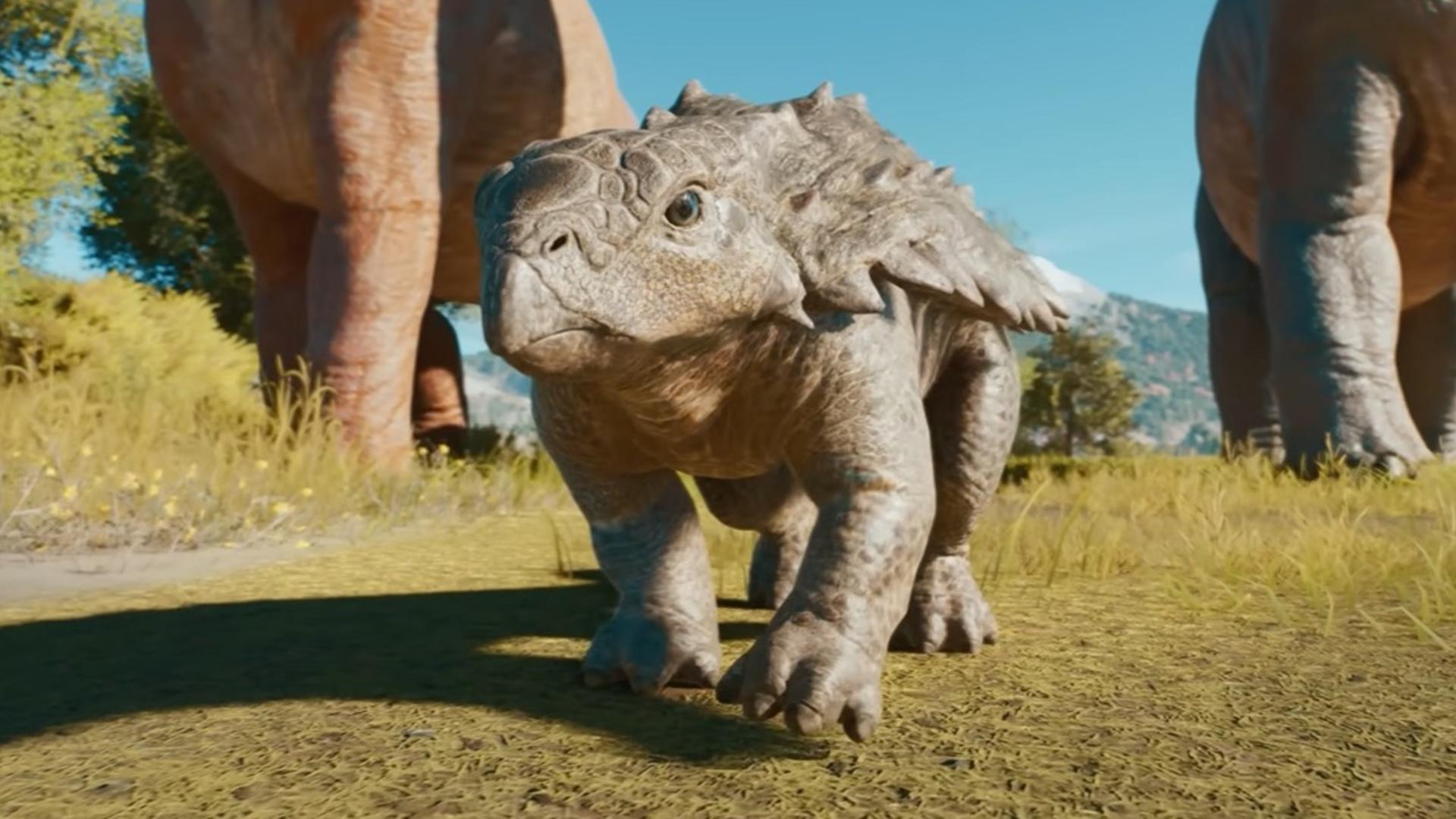
I've already had enough issues over the years dealing with troublesome triceratops and misbehaving velociraptors in the Jurassic World Evolution games - now imagine the carnage some unruly juvenile dinosaurs could cause. Jurassic World Evolution 3's big innovation is a new breeding system, and yes, that of course means adorable baby dinos. N'awww. Now, developer Frontier has released some fresh details on how this new mechanic works, and how playing happy families will be beneficial for your park.
If you've played the first two JWE games, then Jurassic World Evolution 3 will deliver more of the same action - big parks, loads of dinos, and visitors being occasionally mauled to death before they reach the gift shop. However, there are improvements across all of its core systems, a globetrotting campaign that lets you build parks in unique locations, and of course this new breeding mechanic that should help earn it a spot on our best dinosaur games list. Frontier has already explained how genetic traits from mother and father dinos can be passed down to their offspring, and how you'll need the right nest sites, optimum fertility rates, and available scientists in order to successfully breed. But what happens when Brachiosaurus Junior finally comes along?
In a new video, Frontier goes into some more detail about how family units interact with each other and what it'll mean for you, as the overseer, and your guests. The first big thing to consider is that even though they're directly related, the needs of a juvenile and their parents may be different. However, the youngster should always be your first priority, as it'll be impossible to make mom and dad happy if their offspring is being neglected.
There are some specific areas where the needs of a juvenile may be different, such as giving them lower feeders that they can reach or moving them into enclosures with fewer threatening male dinosaurs.

If you manage to create the perfect environment for your juveniles, not only will they develop into excellent adult specimens, but their happiness will increase your visitor satisfaction.
Frontier also reveals that juveniles will behave differently in their enclosure, depending on their species. Some will only roam around while in close proximity to their parents, so the family unit will always be seen together. Others may have a "herd mentality" and are happy to mingle with other dinos of the same species. Some are so confident at a young age that they'll happily follow dinosaurs that are of a completely different species, so don't worry if you see some of your juveniles straying away from their nest site and family.
I'm really excited to give this new system a go. Selectively breeding your dinosaurs and seeing their physical characteristics reflected in those decisions is so much more engaging than past systems. Plus, who doesn't wanna see some baby dinos? Jurassic World Evolution 3 launches on Tuesday, October 21.
For more great park sims, check out our best management games list. Alternatively, take a look at what else is on the horizon with our upcoming PC games guide.
You can follow us on Google News for daily PC games news, reviews, and guides. We've also got a vibrant community Discord server, where you can chat about this story with members of the team and fellow readers.



